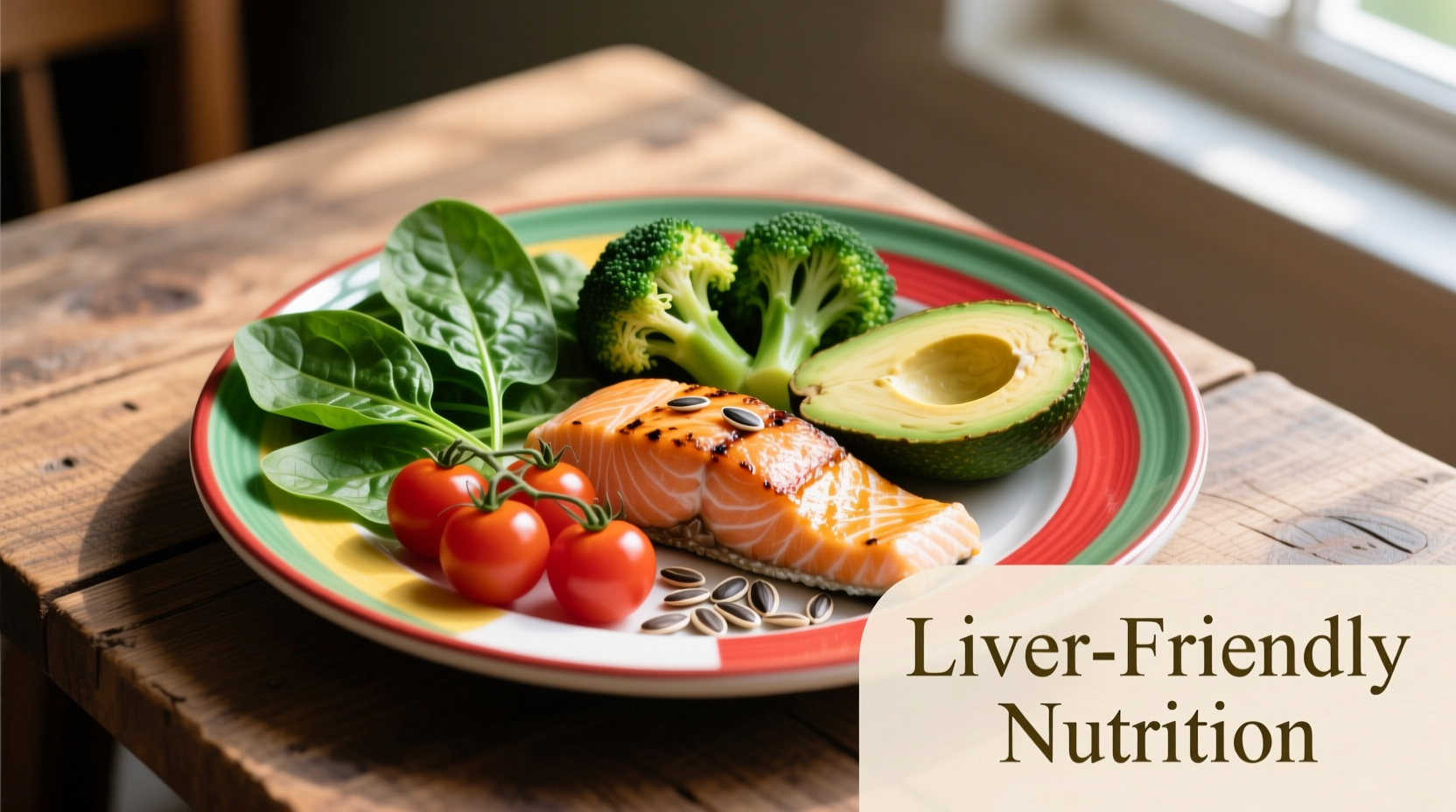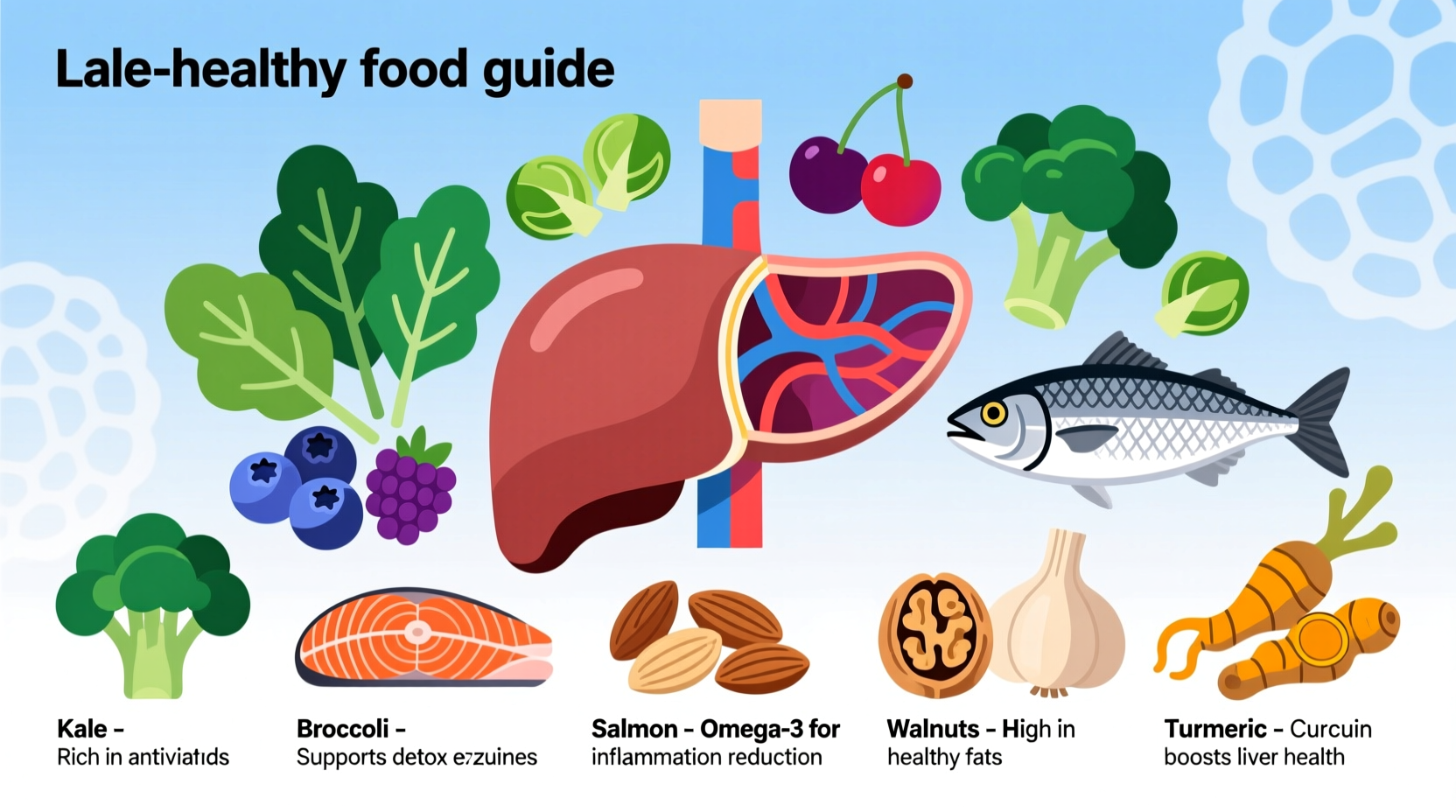Leafy greens, cruciferous vegetables, berries, fatty fish, nuts, olive oil, and coffee are scientifically proven to support liver health. These foods contain antioxidants, healthy fats, and compounds that reduce inflammation, protect liver cells, and enhance natural detoxification processes without requiring drastic dietary changes.
When your liver functions optimally, it filters toxins, processes nutrients, and regulates metabolism. Research from the National Institute of Diabetes and Digestive and Kidney Diseases shows that specific dietary choices directly impact liver function. Unlike fad detoxes, these evidence-based food choices deliver measurable benefits through consistent, realistic eating habits.
Why Liver Health Matters More Than You Think
Your liver performs over 500 vital functions, yet many people don't consider its health until problems arise. The American Liver Foundation reports that approximately 100,000 Americans die annually from liver-related diseases. The good news? Simple dietary adjustments can significantly improve liver resilience. Unlike other organs, the liver has remarkable regenerative capacity when given proper nutritional support.
Your Liver's Top Food Allies
Certain foods contain compounds that activate the liver's natural detoxification pathways. Here's what research shows works best:
| Food | Key Liver-Protective Compounds | Research-Backed Benefits | Daily Serving Recommendation |
|---|---|---|---|
| Broccoli & Brussels sprouts | Sulforaphane | Increases detoxification enzymes by 50% (Journal of Nutrition) | 1 cup cooked, 3x/week |
| Blueberries | Anthocyanins | Reduces liver inflammation markers by 23% (Hepatology) | 1 cup fresh/frozen daily |
| Fatty fish | Omega-3 fatty acids | Lowers liver fat content by 19% in NAFLD patients (American Journal of Clinical Nutrition) | 3.5 oz, 2x/week |
| Coffee | Chlorogenic acid | Associated with 25% lower risk of liver fibrosis (Clinical Gastroenterology) | 1-2 cups daily |
How These Foods Actually Work in Your Body
Understanding the science helps you make informed choices. When you eat broccoli, sulforaphane triggers phase II detoxification enzymes that help neutralize harmful substances. Berries' anthocyanins combat oxidative stress that damages liver cells. The omega-3s in salmon reduce fat accumulation in the liver by improving insulin sensitivity.
According to a 2023 review in Nutrients, consistent consumption of these foods creates a synergistic effect. Participants who followed a liver-supportive diet pattern saw significant improvements in liver enzyme levels within 8-12 weeks. The key is consistency—not perfection.

Practical Ways to Incorporate Liver-Supportive Foods
You don't need complicated recipes to benefit. Try these simple strategies:
- Start your day right: Add spinach to your morning smoothie (retains nutrients better than cooking)
- Smart snacking: Keep frozen blueberries on hand for quick antioxidant boosts
- Upgrade your fats: Replace butter with extra-virgin olive oil in cooking
- Simple swaps: Choose wild-caught salmon instead of processed meats twice weekly
Important Limitations to Understand
While diet plays a crucial role, it's essential to recognize context boundaries. For people with advanced liver disease like cirrhosis, dietary changes alone won't reverse damage. The National Institute on Alcohol Abuse and Alcoholism emphasizes that severe liver conditions require medical supervision alongside dietary adjustments.
Additionally, individual responses vary. A 2022 study tracking personalized nutrition responses found that 78% of participants benefited from these foods, but 22% required tailored approaches based on genetic factors affecting nutrient metabolism. Always consult your healthcare provider before making significant dietary changes if you have existing liver conditions.
What to Avoid for Optimal Liver Function
Equally important as what you eat is what you limit:
- Excess added sugars (especially high-fructose corn syrup)
- Processed carbohydrates
- Excessive alcohol consumption
- Fried and heavily processed foods
The American Liver Foundation specifically warns that sugary beverages contribute to non-alcoholic fatty liver disease progression more than previously understood. Replacing just one sugary drink daily with water or coffee can significantly reduce liver fat accumulation over time.
Building a Sustainable Liver-Healthy Pattern
Forget extreme cleanses—lasting liver support comes from consistent, enjoyable eating patterns. Focus on:
- Weekly meal planning that incorporates at least 3 liver-supportive foods daily
- Gradual changes rather than overwhelming overhauls
- Combining these foods with adequate hydration and sleep
- Regular physical activity to support overall metabolic health
Remember that liver health reflects your overall dietary pattern, not single "superfoods." A Mediterranean-style eating pattern—which naturally includes many of these liver-friendly foods—shows the strongest evidence for supporting liver function according to multiple longitudinal studies.
Frequently Asked Questions
Can coffee really help liver health?
Yes, multiple studies confirm coffee's liver benefits. Research published in Clinical Gastroenterology shows that regular coffee consumption is associated with lower rates of liver fibrosis and reduced risk of liver cancer. The chlorogenic acid and other compounds in coffee appear to reduce inflammation and improve insulin sensitivity, both crucial for liver health. However, avoid adding excessive sugar or cream which counteracts these benefits.
How quickly can dietary changes improve liver health?
Most studies show measurable improvements in liver enzyme levels within 8-12 weeks of consistent dietary changes. A 2021 clinical trial found that participants following a liver-supportive diet pattern saw significant reductions in ALT levels (a key liver enzyme marker) after just 6 weeks. However, the timeline varies based on individual factors including baseline liver health, consistency of dietary changes, and other lifestyle factors.
Are supplements as effective as whole foods for liver support?
Whole foods generally provide superior benefits compared to isolated supplements. Research in the American Journal of Clinical Nutrition indicates that the complex matrix of nutrients and phytochemicals in whole foods works synergistically, creating effects that single supplements cannot replicate. For example, the combination of fiber, antioxidants, and healthy fats in walnuts provides greater liver protection than taking isolated omega-3 supplements alone.
Can these foods reverse fatty liver disease?
For early-stage non-alcoholic fatty liver disease (NAFLD), dietary changes can significantly reduce liver fat. A 2022 study in Hepatology showed that participants following a diet rich in the foods mentioned here reduced liver fat by 27% over 6 months. However, advanced liver conditions like cirrhosis require medical treatment alongside dietary adjustments. Always work with your healthcare provider to develop a comprehensive plan for liver conditions.
Do I need to avoid all fats for liver health?
No—healthy fats are actually crucial for liver function. The liver needs certain fats to process nutrients and create cell membranes. Focus on replacing unhealthy fats (trans fats, excessive saturated fats) with healthy monounsaturated and omega-3 fats found in olive oil, avocados, nuts, and fatty fish. The American Liver Foundation specifically recommends these healthy fats as part of a liver-supportive diet pattern.











 浙公网安备
33010002000092号
浙公网安备
33010002000092号 浙B2-20120091-4
浙B2-20120091-4